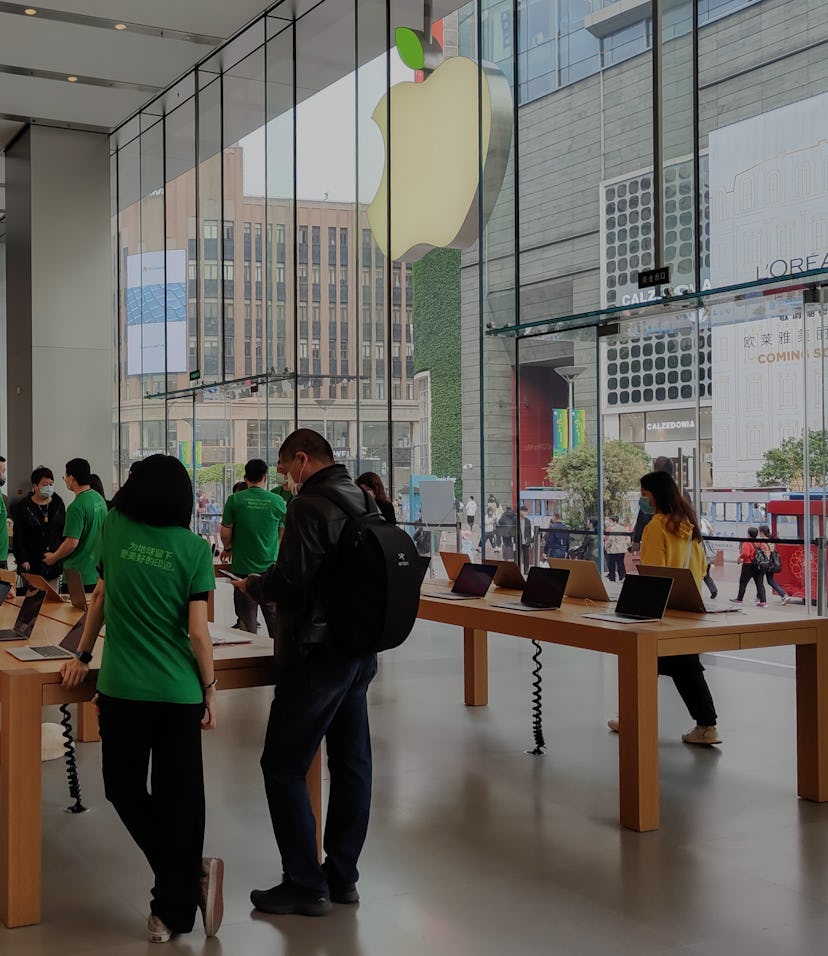Culture
Petty as always, Apple says Tile trackers didn't sell well in its stores
Apple is trying to get ahead of anticompetitive comparisons and, for the most part, coming off as vindictive instead.

Apple is willing to do whatever it takes to remind antitrust investigators that there’s nothing sketchy about its business practices. This week the company sent a letter to Sen. Amy Klobuchar — who’s overseeing the antitrust hearings — claiming innocence in its attempted usurping of Tile’s item-tracking throne (h/t MacRumors).
“Years ago, Apple had some information about how Tile products sold in Apple’s retail store,” the company wrote in its letter. “It did not sell well.”
Apple then goes on to remind Klobuchar that even this small amount of data is outdated and that none of it was used in “any decision making related to AirTags.”
Phew. While not the most cutting comment Apple’s ever made, this is certainly pointed. The company’s long-anticipated AirTags were released last month to much fanfare — and to many comparisons to Tile, one of the most popular item-trackers on the market.
Being called a product-killer might be good for sales, but it doesn’t look great in the face of an antitrust investigation. Apple’s well aware of this fact, and it’s obvious now that it won’t be pulling any more punches.
Right to the point — Tile isn’t the only subject of Apple’s letter. The iPhone-maker also took jabs at Spotify and Match, both of which testified against Apple in the ongoing antitrust hearings.
At the latest hearing, Spotify made a bold claim: If Apple really believes its payment system is the best out there, it should allow competitors to try their own systems, thereby allowing the market to determine the truth of Apple’s statements. “Let supply and demand determine what the right fee is, but they haven’t done that.”
Apple’s retort to investigators says its payment system has already faced competition and come out on top. Before the introduction of the App Store in 2008, Apple says, distributing software on the internet was difficult and expensive. Apple claims the App Store removed a sizeable barrier to entry, in essence allowing competition to flourish on its devices.
Meanwhile, Match — the owner of dating services Tinder and OkCupid — said in court that Apple doesn’t do enough to protect young iOS users in the App Store. In its letter to Klobuchar, Apple denies this outright, saying that it “strives to make the App Store a safe and trusted marketplace, including by empowering parents with parental controls."
That damn commission rate — One of Apple’s most profitable sectors is quickly turning into its biggest headache. Apple’s standardized 30 percent commission rate has now become the centerpiece of two major legal proceedings: the United States’ antitrust investigations and Epic’s lawsuit against Apple.
Apple has long claimed the 30 percent fee helps keep the App Store secure and safe for both companies and users. But the App Store is also profitable for Apple, which means the fee isn’t just about maintenance — it’s about making billions in cold hard cash.
Whether or not Apple’s business practices can be categorized as anticompetitive will ultimately be up to the legal system. But this letter — and the company’s overall strategy in court — shows it’s willing to fight tooth-and-nail all the way.